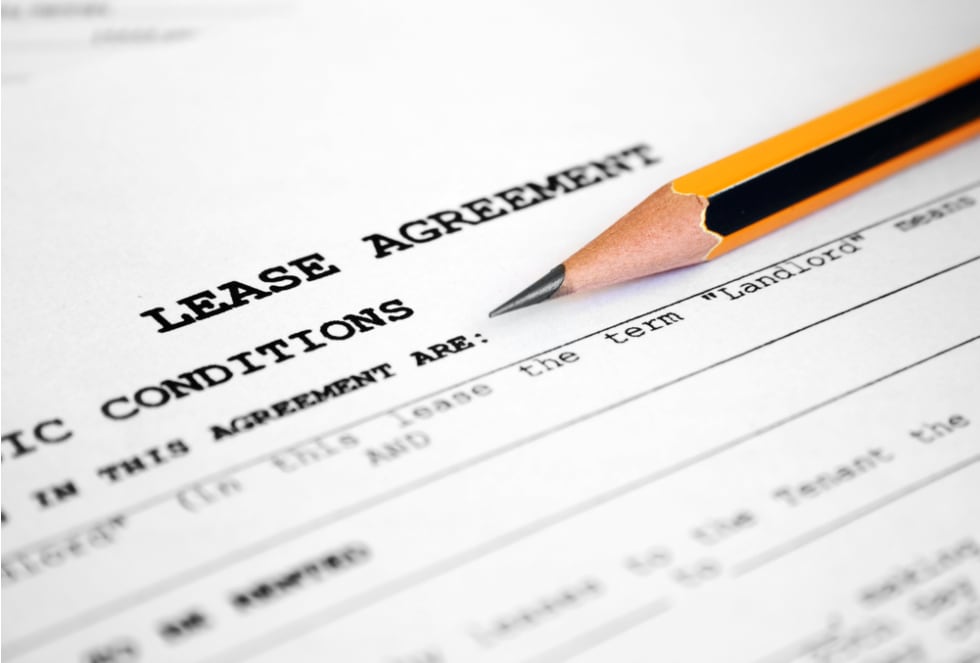- 73 units available
- Studio • 1 bed • 2 bed • 3 bed
- Amenities
In unit laundry, Granite counters, Pet friendly, Stainless steel, Walk in closets, Gym + more

It’s possible to negotiate your lease length when renting an apartment. Most people know they can negotiate rent, but many renters are unaware of negotiating lease length as a useful renting strategy designed to offer a little more flexibility for those renters with unique needs.
Negotiating lease length can help you land a comfortable and convenient living arrangement for as long as necessary. For example, you may know that you will only be living in a city for the next eight months before moving.
In this instance, signing a standard twelve-month lease requires you to sublet your apartment for the final four months or face penalties for breaking your lease early. If you are able to negotiate your lease length upfront, you can easily avoid these hassles.
If you’re in the market for a new apartment, though you need a specific lease length, we’ve got you covered. Here’s everything you need to know about negotiating lease length!
Lease lengths vary greatly, though most renters find that the most commonly offered lease length is twelve months from the lease’s start date. However, it’s far from the only option on the market. Here’s a look at some of the most common lease length options.

The best time to talk to your landlord is before you sign a lease. Once you've signed, there's not much you can do to change the terms of your agreement. So be prepared to state clear terms and make signing your lease contingent on coming to an arrangement.
The art of making a deal requires the preparation of an informed strategy. It’s not a good idea to waltz into your landlord’s office asking to negotiate your lease term without proving that it will be beneficial to your landlord. Take the time to research rent rates in your market and lease lengths. Compare this information to the offered rent and length of the rental you’re looking at.
Example: "Let's say the average rent for a 1-year lease in your building is $1,200, but you find several 6-month leases for similar units at $1,300. This shows you could propose a 6-month lease at $1,300, demonstrating you're willing to pay a slight premium for a shorter term."
If you can prove that your ask is on par with the market, you have a greater chance of convincing your landlord that a shorter lease length will keep them competitive in the market.
Moreover, they may simply be impressed by the work you’ve put in to prove your point, though that’s no guarantee that they’ll approve.
Honesty is the best policy; not only in life, but in negotiating lease length. It’s important to explain why you need a custom lease length to your landlord or property manager.
Perhaps you are in the process of closing on a house in a new city or relocating for a job in a few months. Whatever your reasons, being upfront about your situation is important.
That said, your chances of getting approved will depend on how sympathetic your landlord is to your situation.
You’re unlikely to be approved if your reasoning for needing an adjusted lease length is something like, “I have no idea what I’m doing next week, let alone next year.” You’ll come off as unreliable and indecisive, which won’t win you any favor with most landlords.
Landlords are in the business of making money. If a shorter lease term disrupts their income flow, they might be more receptive if you offer a slightly higher monthly rent or a larger security deposit. It's also customary for landlords to charge more for shorter leases, meaning you should expect to pay more in almost any situation. Offering an additional $100 or $200 a month could go a long way toward sweetening the deal for your landlord.
Remember, increasing your upfront cost should be weighed against the benefit of a shorter lease. This strategy might not be ideal for everyone, but it's a good option to have in your negotiation toolbox.
One of the unintended downsides to asking for a reduced lease term is that you may come off as an unreliable tenant. However, renting is a business with the goal of making money. Prove yourself to be a good customer.
If you can prove that you’re able to cover your rent without any issues, you’re more likely to be successful when asking for a reduced term.
The best way to prove yourself to a landlord or property manager is to offer several months of rent upfront or agree to pay a higher rent rate.
Of course, this tactic puts you in a less convenient position financially, but it’s a great way to increase your chances of success.
Keep in mind that some states limit the amount of rent money a landlord can collect each month or upfront, so be sure to check your local laws before attempting this tactic.
Although private parking spots may seem like an unimportant apartment amenity, they are actually very powerful bargaining chips.
This is especially true if you live in a major city with lacking parking options (think: San Francisco or New York).
Landlords and property managers may allow other tenants to purchase additional parking spaces based on availability.
If you don’t need a parking space or are comfortable parking your car elsewhere, offer to give up your space in exchange for a custom lease length.
However, this tactic will only work if a private parking space is included as a part of your lease agreement. If the apartment complex or community only offers paid parking spots, you won’t have this option.
It’s important to make a good impression when submitting an apartment application. If you are the most attractive tenant option, you’ll be more likely to be approved for the unit.
Once approved, you can move ahead with the negotiating process. So, your rental application is the best way to get your foot in the door.
Here’s a look at the essential features of a standout apartment application:
Of course, an apartment application will have other relevant information, but these are the two factors that will help your application catch a landlord’s attention!
While the focus of this article is negotiating a shorter lease, there are situations where a longer lease might be advantageous for you as a tenant. Here's why you might consider it, and how to approach the negotiation:
Negotiation isn’t for the faint of heart, whether you’re negotiating a custom lease term or competing on Shark Tank. In both cases, the payoff can be huge. Research, know where you stand as a prospective tenant, and argue your case as best you can — you might just land a custom lease term.
Otherwise, you can save yourself the hassle of negotiating by using Apartment List’s advanced search tools to find short-term leases in your preferred city. Either way? Good luck!


In unit laundry, Granite counters, Pet friendly, Stainless steel, Walk in closets, Gym + more
In unit laundry, Nest technology, Patio / balcony, Dishwasher, Pet friendly, New construction + more